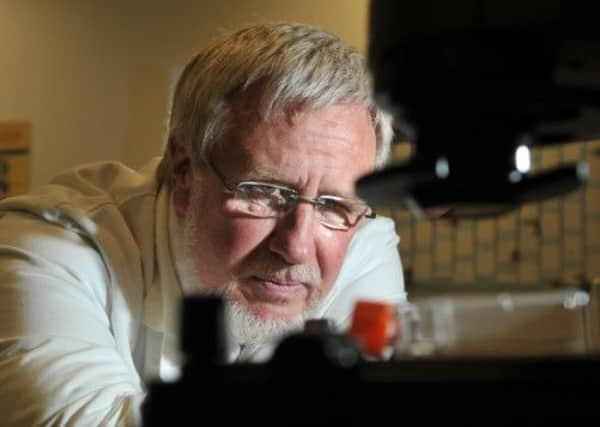Yorkshire scientists announce breakthrough on prostate cancer


The research at York University reveals the existence of a “genetic accidents” in prostate cancer stem cells which trigger a process leading to the disease.
Their discovery in work funded by the charity Yorkshire Cancer Research (YCR) opens the way to the development of drugs targeting the stem cells, leading to more effective therapies against the root cause of the disease.
Advertisement
Hide AdAdvertisement
Hide AdProstate cancer is diagnosed in 41,000 men each year in the UK and accounts for a quarter of all cancers in men, claiming nearly 11,000 lives.
Prof Norman Maitland, director of the YCR Cancer Research Unit, and his team were the first to isolate prostate cancer stem cells in 2005. While other cancer cells can be killed by existing therapies, stem cells are able to evade their effects, resulting in cancer recurrence.
The team has since been exploring the exact properties allowing the cells to spread, survive and resist radiation and chemotherapy treatments.
Prof Maitland said: “This discovery marks a fundamental shift in our understanding of how solid cancers start. It is believed that ‘root’ cancer cells arise from healthy stem cells going wrong – for example certain controls can be turned off which allow the cells to keep growing and invade surrounding tissue.
Advertisement
Hide AdAdvertisement
Hide Ad“In blood cancers such as leukaemia, DNA is rearranged during an event known as chromosomal translocation, which results in a mutant protein that drives cancer progression. Although similar rearrangements have recently been discovered in solid cancers, until now, they have not been considered as stem cell functions. Our work has challenged this idea.”
Prof Maitland’s team has found these genetic accidents in prostate cancer stem cells and shown they result in a specific cancer-associated gene within the cells being activated.
He added: “The cells become selfish by surviving outside normal controls that exist in the prostate and thrive at the expense of their neighbours, ensuring that the genetic accident becomes permanent and passed from generation to generation. This process appears to be essential for the initiation of prostate cancer.”
Yorkshire Cancer Research is funding a £2.15 million five-year programme at the unit to allow scientists to continue their international award-winning research into prostate cancer.
Advertisement
Hide AdAdvertisement
Hide AdKathryn Scott, head of research funding at the charity, said: “This exciting discovery is another step forward in our understanding of how prostate cancer begins. The findings mean that new therapies can now be developed which specifically target the protein identified, killing the stem cells that remain after chemotherapy while leaving healthy cells untouched.”
The research is published today in the journal Nature Communications